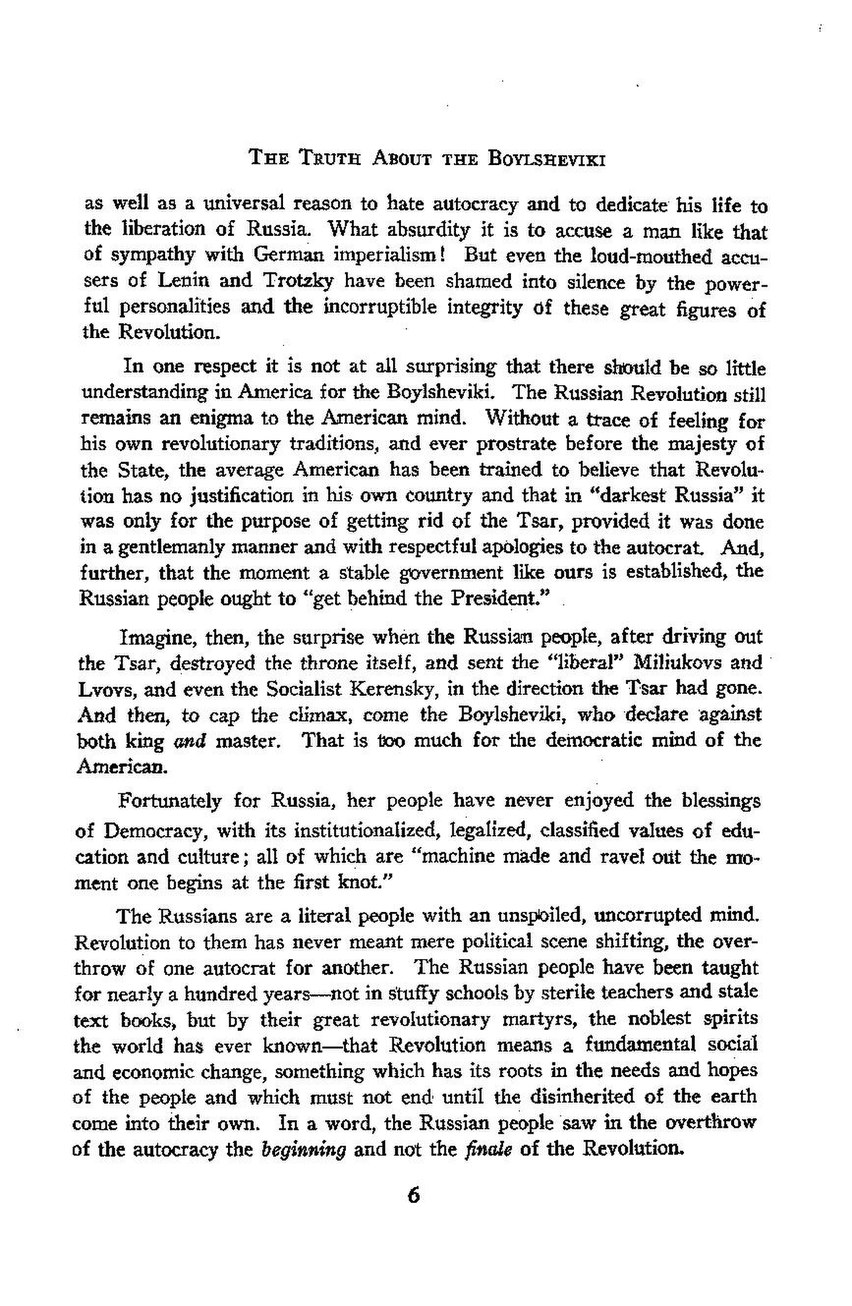The Truth About the Bolsheviki
as well as a universal reason to hate autocracy and to dedicate his life to the liberation of Russia. What absurdity it is to accuse a man like that of sympathy with German imperialism! But even the loud-mouthed accusers of Lenin and Trorsky have been shamed into silence by the powerful personalities and the incorruptible integrity of these great figures of the Revolution.
In one respect it is not at all surprising that there should be so little understanding in America for the Boylsheviki. The Russian Revolution still remains an enigma to the American mind. Without a trace of feeling for his own revolutionary traditions, and ever prostrate before the majesty of the State, the average American has been trained to believe that Revolution has no justification in his own country and that in "darkest Russia" it was only for the purpose of getting rid of the Tsar, provided it was done in a gentlemanly manner and with respectful apologies to the autocrat. And, further, that the moment a stable government like ours is established, the Russian people ought to "get behind the president."
Imagine, then, the surprise when the Russian people, after driving out the Tsar, destroyed the throne itself, and sent the "liberal" Miliakovs and Lvovs, and even the Socialist Kerensky, in the direction the Tsar had gone. And then, to cap the climax, come the Boylsheviki, who declare against both king and master. That is too much for the democratic mind of the American.
Fortunately for Russia, her people have never enjoyed the blessings of Democracy, with its institutionalized, legalized, classified values of education and culture; all of which are "machine made and ravel out the moment one begins at the first knot."
The Russians are a literal people with an unspoiled, uncorrupted mind. Revolution to them has never meant mere political scene shifting, the overthrow of one autocrat for another. The Russian people have been taught for nearly a hundred years—not in stuffy schools by sterile teachers and stale text books, but by their great revolutionary martyrs, the noblest spirits the world has ever known—that Revolution means a fundamental social and economic change, something which has its roots in the needs and hopes of the people and which must not end until the disinherited of the earth come into their own. In a word, the Russian people saw in the overthrow of the autocracy the beginning and not the finale of the Revolution.
6
